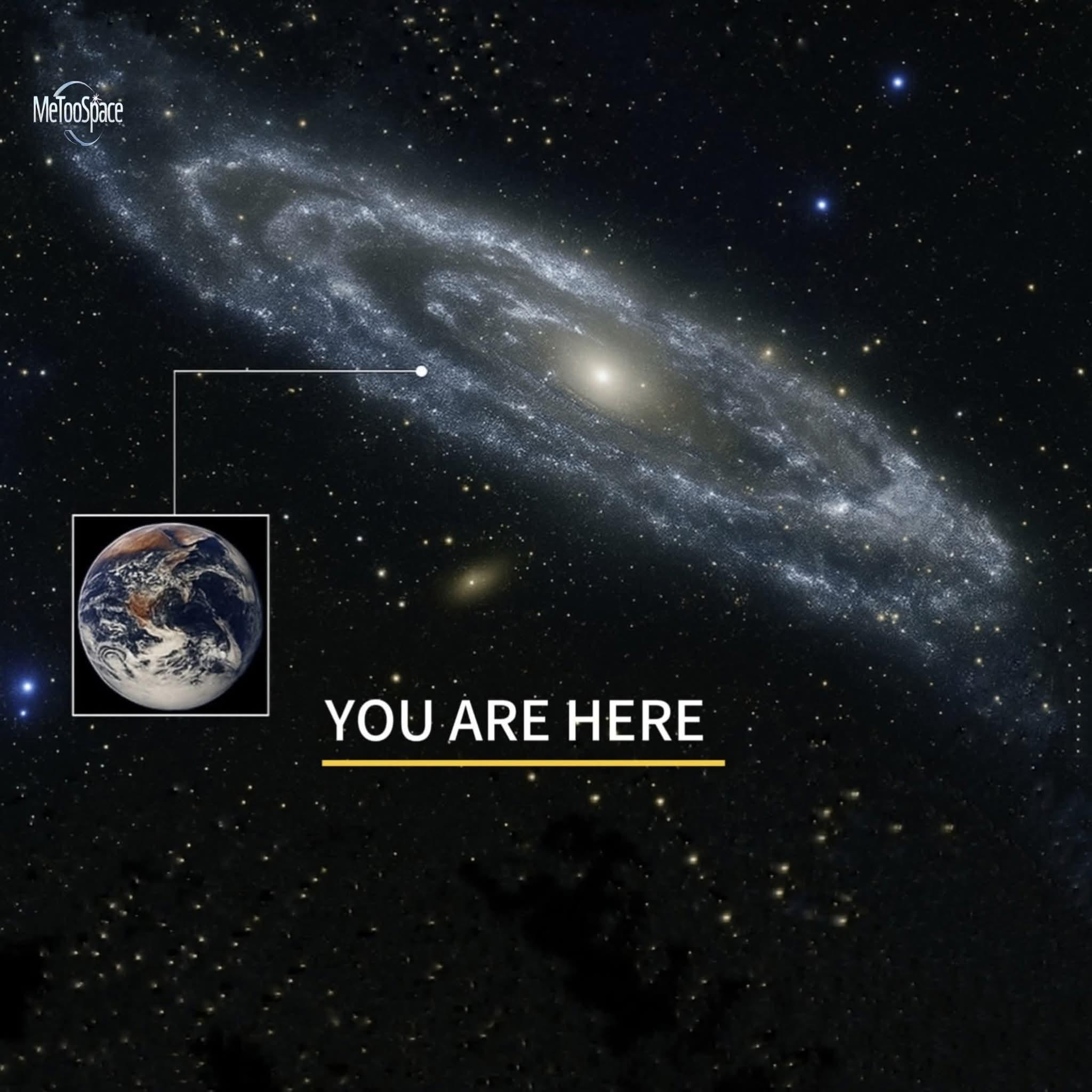A Speck in the Cosmos: Humanity’s Place in the Galaxy
When we look up at the night sky, it's easy to feel small and for good reason. Earth, with all its mountains,oceans and billions of people is just a tiny planet orbiting a medium-sized star (the Sun) in the outskirts of the Milky Way galaxy.But zoom out even further, and the scale becomes almost unimaginable.
Our galaxy alone contains over 100 billion stars, many with their own planets. The Milky Way stretches about 100,000 light-years across, meaning even if we traveled at the speed of light, it would take us 100,000 years to cross it. Earth orbits just one of those stars, located in a quiet region called the Orion Arm far from the bustling galactic core.
Now consider this: the Sun is about 1.4 million kilometers wide, but it's only a grain of sand compared to the Milky Way. And Earth is over 100 times smaller than the Sun.A human being in this context is microscopic we're less than a flicker smaller than a pixel in the grand picture of the universe.
And yet despite this cosmic insignificance, humans are capable of understanding it.We've sent probes beyond our solar system mapped the universe's structure, and pondered questions far beyond our scale.We may be small but our curiosity, imagination, and desire to explore are vast and that's something the universe can’t measure.
#space #science #fact #facts
When we look up at the night sky, it's easy to feel small and for good reason. Earth, with all its mountains,oceans and billions of people is just a tiny planet orbiting a medium-sized star (the Sun) in the outskirts of the Milky Way galaxy.But zoom out even further, and the scale becomes almost unimaginable.
Our galaxy alone contains over 100 billion stars, many with their own planets. The Milky Way stretches about 100,000 light-years across, meaning even if we traveled at the speed of light, it would take us 100,000 years to cross it. Earth orbits just one of those stars, located in a quiet region called the Orion Arm far from the bustling galactic core.
Now consider this: the Sun is about 1.4 million kilometers wide, but it's only a grain of sand compared to the Milky Way. And Earth is over 100 times smaller than the Sun.A human being in this context is microscopic we're less than a flicker smaller than a pixel in the grand picture of the universe.
And yet despite this cosmic insignificance, humans are capable of understanding it.We've sent probes beyond our solar system mapped the universe's structure, and pondered questions far beyond our scale.We may be small but our curiosity, imagination, and desire to explore are vast and that's something the universe can’t measure.
#space #science #fact #facts
A Speck in the Cosmos: Humanity’s Place in the Galaxy
When we look up at the night sky, it's easy to feel small and for good reason. Earth, with all its mountains,oceans and billions of people is just a tiny planet orbiting a medium-sized star (the Sun) in the outskirts of the Milky Way galaxy.But zoom out even further, and the scale becomes almost unimaginable.
Our galaxy alone contains over 100 billion stars, many with their own planets. The Milky Way stretches about 100,000 light-years across, meaning even if we traveled at the speed of light, it would take us 100,000 years to cross it. Earth orbits just one of those stars, located in a quiet region called the Orion Arm far from the bustling galactic core.
Now consider this: the Sun is about 1.4 million kilometers wide, but it's only a grain of sand compared to the Milky Way. And Earth is over 100 times smaller than the Sun.A human being in this context is microscopic we're less than a flicker smaller than a pixel in the grand picture of the universe.
And yet despite this cosmic insignificance, humans are capable of understanding it.We've sent probes beyond our solar system mapped the universe's structure, and pondered questions far beyond our scale.We may be small but our curiosity, imagination, and desire to explore are vast and that's something the universe can’t measure.
#space #science #fact #facts
0 التعليقات
0 المشاركات
517 مشاهدة



